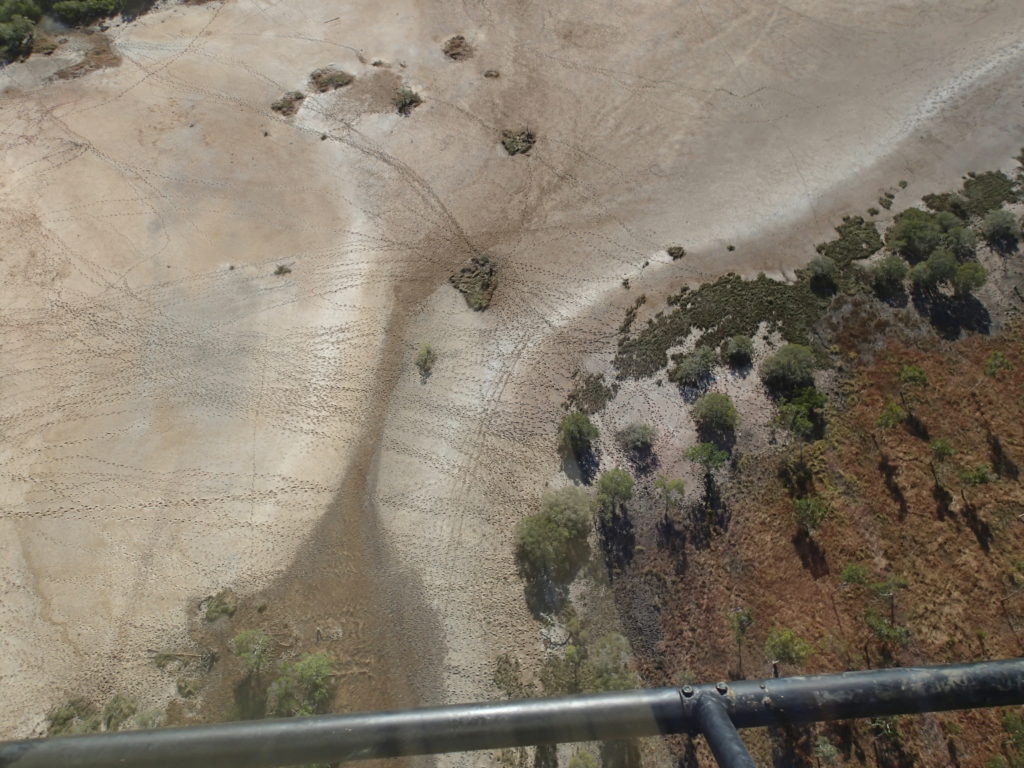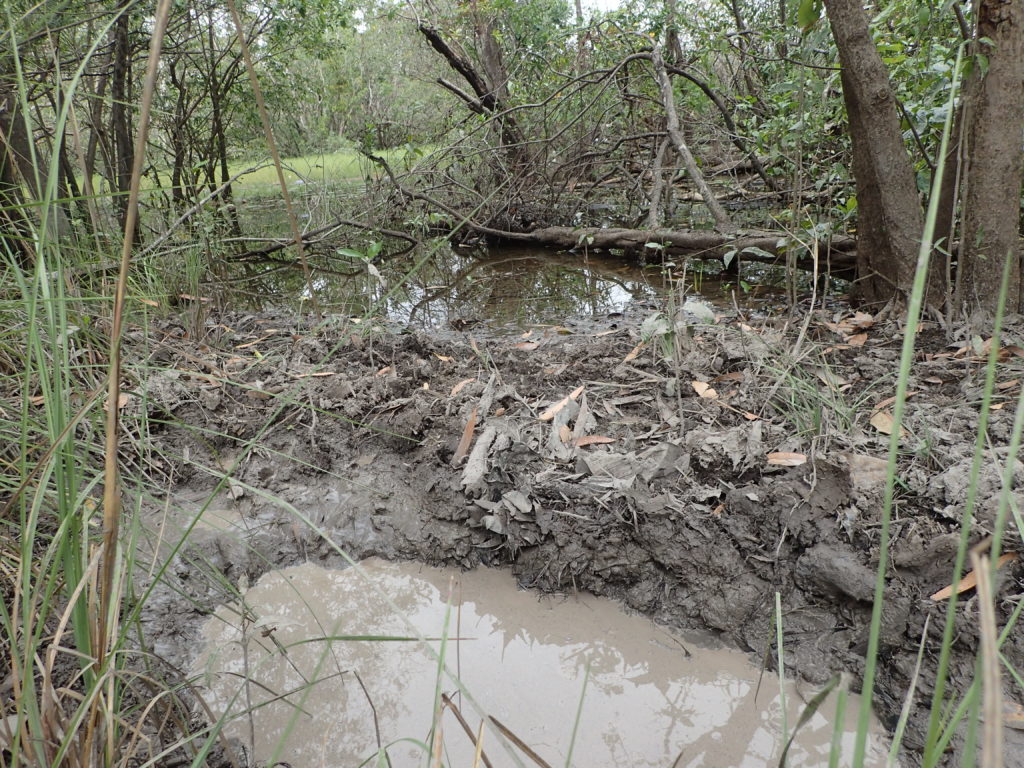15 August 2017
Hub researchers from CSIRO, James Cook University and the Queensland government have been in the field working with Indigenous rangers in the Archer River catchment on the Cape York Peninsula. The research project is investigating the impact of feral pigs on waterholes, and designing monitoring methods and reporting frameworks that can be shared with other land and water managers across northern Australia.
Peter Negus, a wetland scientist on the trip, explained that this field visit explored ideas around how to best sample the remote waterholes, and collected geo-referenced photos of wetlands and the damage feral pigs have caused to them.
“The photos will contribute to placing individual wetlands into ‘types’ so we can better understand and model how pigs use them, and will also serve as a reference for future monitoring” he explained further.
The team, led by Dr Justin Perry, is working closely with Aak Puul Gnangtam, Kalan Enterprises and Balkanu. This project builds on and works alongside other projects to control feral animals in the region.
For more information see this factsheet or contact justin.perry@csiro.au or jonathan.marshall@dsiti.qld.gov.au.

Pig tracks showing movement between wetland areas, photo Peter Negus.

Feral pig wallow adjacent to wetland, photo Peter Negus.
Want to know more about the Resilient Landscapes Hub's activities and our research into practical solutions to environmental problems? Stay informed about activities, research, publications, events and more through the Hub newsletter.